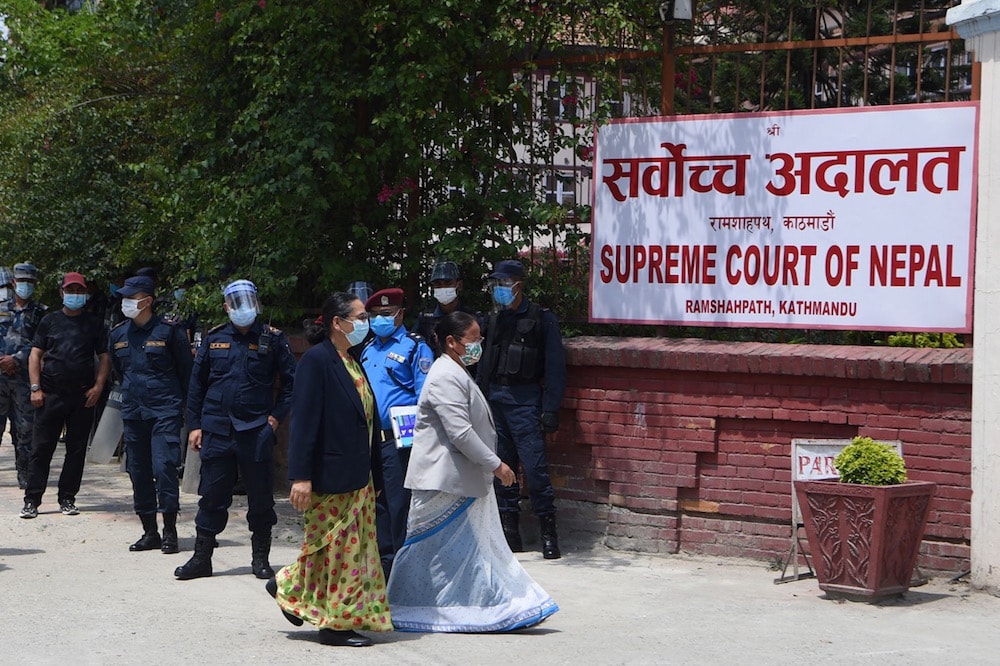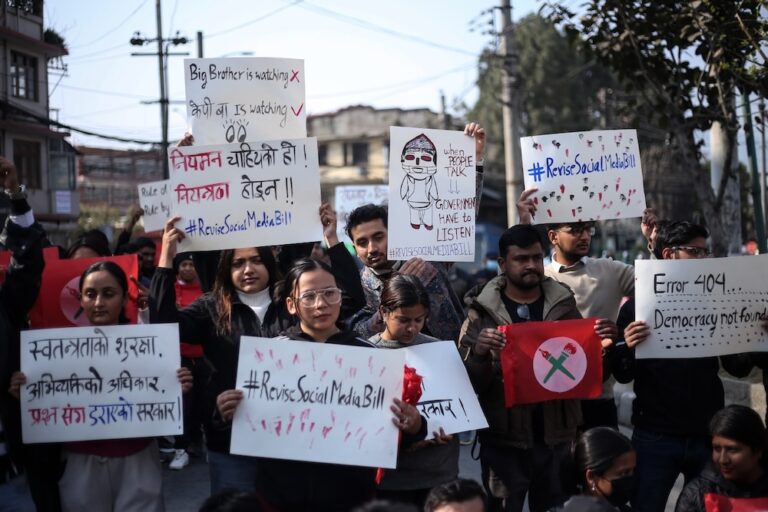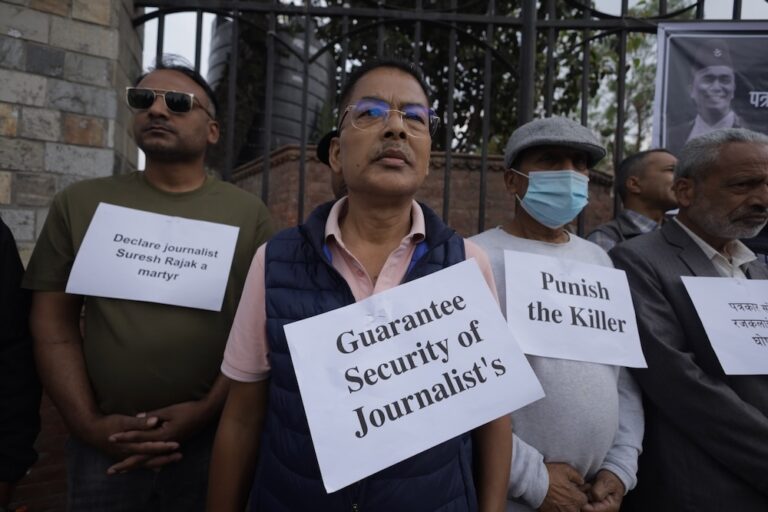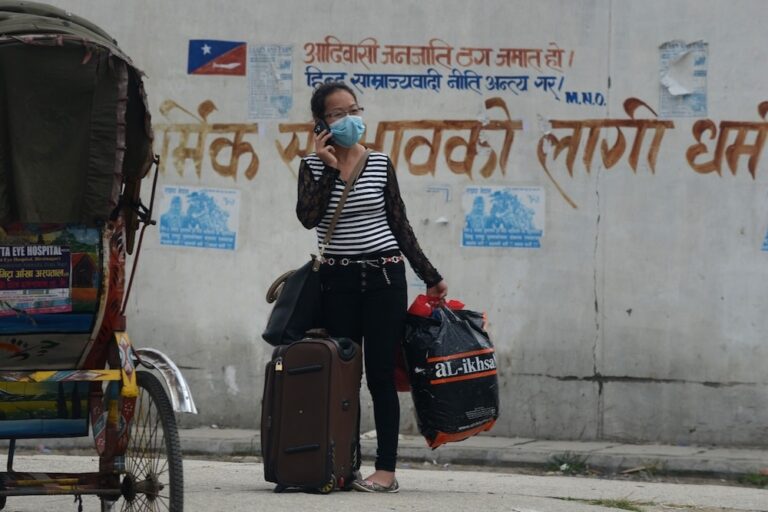Two editors were summoned and questioned by the Supreme Court over a 'baseless' news report. Freedom Forum said this is a form of harassment that undermines the work of independent media.
This statement was originally published on freedomforum.org.np on 26 May 2021.
Freedom Forum expressed alarm over the interrogation of journalists by the Supreme Court over a news report on May 25.
Rajan Kuikel, Chief Editor at www.imagekhabar.com, and Narayan Amrit, Editor-In-Chief at www.nepalsamaya.com, were summoned by the Supreme Court on May 25 and interrogated as to why they had published ‘baseless news’.
Chief Editor Kuikel informed Freedom Forum that the Supreme Court summoned them, arguing that a news report they had published about a meeting between the Prime Minister and the Chief Justice was ‘fake and misleading’. “Why did you publish such unverified news? What’s your news source? Why can’t you share with us the news source,” they were grilled when they reached the court on Tuesday afternoon. The court officials insisted that the news report damaged the Supreme Court’s image.
Causing further apprehension and panic, the media regulatory body, Press Council Nepal, issued a letter to the editors on the same day seeking clarification over the news content and source. Given that the editors had published the Supreme Court’s version along with the news report, the misuse of the Press Council by the government is upsetting.
These actions have resulted in the harassment of the journalists and discredited independent media. The intimidation of the journalists, who are working despite the adversity caused by Covid-19, has jeopardized the atmosphere of a free press.
As such, Freedom Forum Executive Chief Taranath Dahal, commented, “The government has repeatedly been misusing the Press Council’s authority to intimidate the independent media and question its credibility. The adoption of legitimate procedures is imperative to verify news reports in case there is concern about content. Similarly, the interrogation of journalists and asking them for their sources by court officials is worrying and risks journalists’ safety. Free press and an independent judiciary are equally important pillars of any democratic system. Harmonious relations between them contribute to fostering democratic values. FF therefore urges both sides to respect each other. But, it is a rare occurence in Nepal that the Supreme Court has intimidated journalists in such a way. Similarly, the content regulatory body, the Press Council Nepal, needs to protect journalists’ rights rather than issuing orders and making the media panic repeatedly. All sides are urged to respect press freedom, which is guaranteed by the constitution.”
Moreover, it is the responsibility of an editor to protect news sources while the image of a court must not be tarnished by the publication of fake news. Balance in news is essential, while at the same time, editors have the right to take a stand on news items, Mr Dahal added.
While Nepal is suffering from the coronavirus pandemic lately, the political situation is also messy with the repeated dissolution of the House of Representatives (HoR) by the government of the UML party, which many constitution experts and opposition parties have called an unconstitutional move.
After Prime Minister KP Oli dissolved the HoR recently, the President called on the parties to propose a leader to form the new government, which also failed because of political bickering.
The media carried the news of a meeting between the PM and Chief Justice on the night after the opposition parties were at the Supreme Court during the day – they were seeking justice and demanding order to appoint an opposition leader they proposed as a new Prime Minister to restore parliament, arguing that the PM’s move was unconstitutional.



